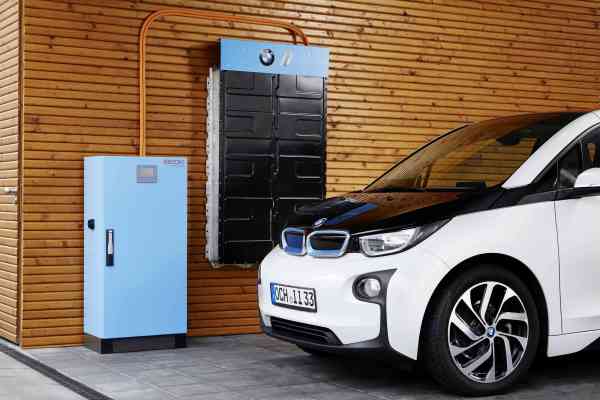BMW i joins Tesla and Mercedes-Benz in bringing energy storage home with its new system, which has yet to be given a catchy name. The system uses new or used batteries from the BMW i3 electric car to store power from solar panels for later use. It integrates with the charging station users are likely to have in the garage, so the stored energy from the sun can power your i3 overnight.
Basically, if you keep your i3 long enough that the battery outlives its useful lifespan as a power source for your car, you can recycle it yourself. This system is plug-and-play, according to BMW’s press release, so you can use the battery’s remaining storage power in the stationary system after you get a replacement battery for the car.
BMW i is also anticipating the near-future availability of second-life batteries, which would be retired batteries from other people’s i3 cars. Because the i3 has only been in production since 2013 (as a 2014 model year), there’s going to be several years of lag time before those batteries are ready to be recycled for in-home storage. But early batteries used in the Mini E test fleet have already been installed in a similar capacity at the University of San Diego, and energy distributor NextEra has already signed a contract for 20 MWh of second-life batteries, the largest order of used automotive batteries so far.
The BMW i lithium-ion battery has a capacity of 22 kWh or 33 kWh. The company says that’s enough to power a typical American household, which uses 15-30 kWh day, for up to 24 hours. The BMW Group Technology Office is partnering with Pacific Gas & Electric Company and i3 owners in California to study how home energy storage and charge management can lower the overall cost of EV ownership. The study allows BMW to delay or interrupt charging during peak times, so if range anxiety is one of your EV issues, this might not be the study for you.
